News

Expertscape ranks our published work on Apolipoprotein E in the top 0.19% worldwide
According to Expertscape, a worldwide registry of experts, Prof. Kypreos' expertise on Apolipoproteins E, based on his published work ranks in the top 0.21% worldwide among 40,449 published authors from 2007 through 2018. Moreover, Prof. Kypreos' work on:-High Density Lipoprotein (HDL) ranks in the top 0.29% worldwide among 60,349 published authors from 2007 through 2018. http://expertscape.com/au/lipoproteins%2C+hdl/Kypreos%2C+K+E-Apolipoprotein A1, ranks in the top 0.83% worldwide among 13,490 published authors from 2007 through 2018. http://expertscape.com/au/apolipoprotein+a-i/Kypreos%2C+K+EHyperlipidemias ranks in the top 3.1% worldwide among 64,523 published authors from 2007 through 2018. http://expertscape.com/…/hyperlipidem…/Kypreos%2C+Kyriakos+EFor Prof. Kypreos' most current publication record please refer to PubMed. For updated statistics on his published work please visit google scholar or scopus. Prof. Kypreos' orchid profile may be...

BBA Molecular Basis of Disease, accepted for publication our paper entitled “Site-specific effects of apolipoprotein E expression on diet-induced obesity and white adipose tissue metabolic activation”
BBA Molecular Basis of Disease (BBA Dis), just accepted for publication our paper entitled “Site-specific effects of apolipoprotein E expression on diet-induced obesity and white adipose tissue metabolic activation”. The paper shows that brain APOE exerts a dominant inhibitory effect on white adipose tissue (WAT) mitochondrial metabolic activation that is independent of its ability to promote postprandial lipid deposition to tissues, including liver and WAT. There is a wide perception among broader scientific community that Apoe promotes obesity via direct lipid delivery to adipose tissue in the periphery [1]. This is based on the knowledge that lipoprotein-bound Apoe is a...
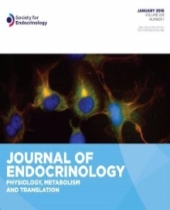
Our manuscript entitled ‘High-Density Lipoprotein (HDL) metabolism and bone mass’ is now featured in the Journal of Endocrinology educational resources - JBL (Journal Based Learning)
Our manuscript ‘High-Density Lipoprotein (HDL) metabolism and bone mass’ recently accepted for publication in the Journal of Endocrinology (IF=4.71, Official Journal of the Society for Endocrinology) has been selected to be featured in the journal’s educational resource – Journal Based Learning (JBL). JBL is being introduced to help educate clinicians-in-training and junior researchers. It is based upon leading articles published in the Journal of Endocrinology that form the evidence for continuing professional development programmes. Congratulations to all contributors for their good work!

Apolipoprotein C3, a critical apolipoprotein for hypertriglyceridemia, exerts pleiotropic effects on HDL Functionality and Adipose Tissue Metabolic Activity
The Journal of Lipid Research, the official lipidology journal of ASBMB, yesterday published our work on the "Pleiotropic effects of apolipoprotein C3 on HDL functionality and adipose tissue metabolic activity" Apolipoprotein C3 (APOC3) is a small glycoprotein in blood, secreted by the liver and intestine. APOC3 plays important role in plasma triglyceride metabolism since numerous epidemiological and animal studies have established a direct correlation of plasma APOC3 levels to plasma triglyceride levels. Based on this important function of APOC3, silencing antisense oligonucleotides targeting Apoc3 expression are currently in clinical trials for the treatment of hypertriglyceridemia and its related pathologies. In...
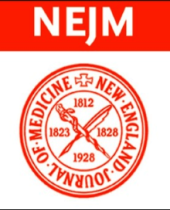
EVACETRAPIB: Another Failed Hdl-Cholesterol Raising Drug
404 Oops... Page Not Found! We're sorry, but the page you were looking for doesn't exist. Go Back to Homepage
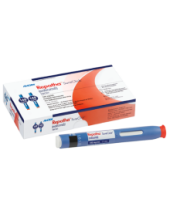
RENEWED HOPE: Cholesterol-Lowering Medication Repatha™ (evolocumab) reduces the risk of cardiovascular events by an additional 15%
On March 17, 2017, the FOURIER trial lead investigators announced that the PCSK9 inhibitor evolocumab (manufactured by AMGEN) significantly reduced the risk of cardiovascular events by 15%. The detailed results from the FOURIER outcomes trial were presented at the American College of Cardiology's 66th Annual Scientific Session Friday, March 17 in Washington, D.C.According to the new data, inhibition of PCSK9 with evolocumab on a background of statin therapy lowered LDL cholesterol levels to a median of 30 mg per deciliter (0.78 mmol per liter) and reduced the risk of cardiovascular events. These findings indicate that patients with atherosclerotic cardiovascular disease...

Eleni Karavia Ph.D., group leader in our laboratory received an award of best poster presentation
Eleni Karavia Ph.D., group leader in our laboratory received an award of best poster presentation during the recent annual conference of the Hellenic Pharmacological Society. Her presented work focused on the SRBI receptor of HDL as a potential pharmacological target for diet-induced obesity and related metabolic perturbations. We would like to congratulate her and wish her continuing success in the future.

Atlas of Science published an article dedicated to our work on HDL quality in human health and disease
On January 12, 2016, Atlas of Science, an online science magazine for popular science, published an article on our work on the role of HDL quality versus quantity in human health and disease. The article was sparked by our recent review paper published in AJP Endo Metab. Atlas of Science publishes commissioned articles on hot topics by invitation only. To read the article please follow the link.

The American Journal of Physiology-Endocrinology and Metabolism published our invited review entitled "Advances in High Density Lipoprotein Physiology: surprises, overturns and promises"
On November 3 2015, the American Journal of Physiology-Endocrinology and Metabolism published our invited review entitled "Advances in High Density Lipoprotein Physiology: surprises, overturns and promises". In the manuscirpt we provide a historic review of HDL since its discovery in 1920s focusing on the most recent and novel findings correlating HDL properties and functionality with various pathophysiological processes and disease states, such as obesity, type 2 diabetes mellitus, nonalcoholic fatty liver disease, inflammation and sepsis, bone and obstructive pulmonary diseases, and brain disorders.For details please visit the American Journal of Physiology-Endocrinology and Metabolism.
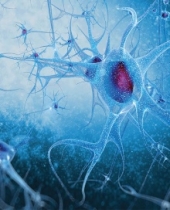
Our work on the effects of weight loss on HDL quality is featured in World Biomedical Frontiers
World Biomedical Frontiers, selected our recently published work on the effects of rapid weight loss on HDL particle composition and functionality, as a featured article in their September issue of Obesity and Diabetes. The original paper is published in the Journal of Clinical Lipidology, the official Journal of the US National Lipid Association (NLA). World Biomedical Frontiers is a forum that highlights each month important papers in the field of Biomedical research. To reach our featured work in World Biomedical Frontiers, please follow this link.
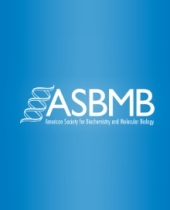
ASBMBToday features a story on our recent work on Ldlr and hypogonadism
Dr. Rajendrani Mukhopadhyay, the Senior science writer and technical editor of ASBMBToday, the official membership magazine of ASBMB, presents a story on our latest work on LDLr and testosterone metabolic effects, published recently in the Journal of Lipid Research. Read the full story here...This research project was implemented within the framework of the Action «Supporting Postdoctoral Researchers» of the Operational Program "Education and Lifelong Learning" (Action’s Beneficiary: General Secretariat for Research and Technology), and was co-financed by the European Social Fund (ESF) and the Greek State.